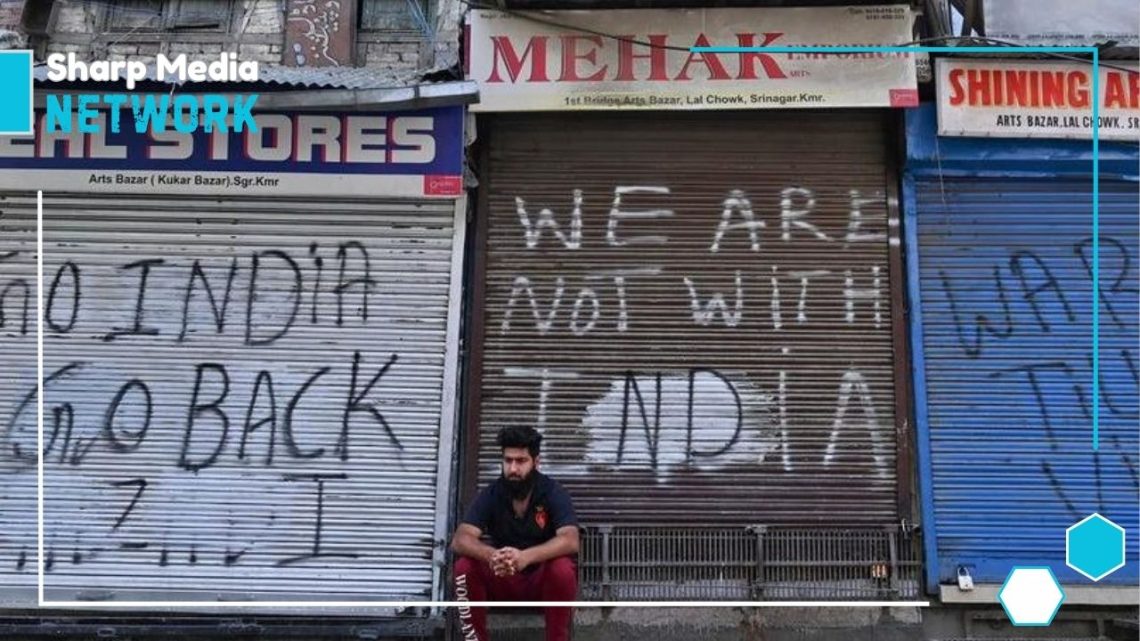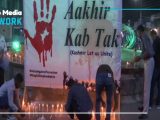
Land Grabbing and Settler Colonialism in IIOJK: The Modi Government’s Strategy to Alter Demographics
February 20, 2025Under the guise of “security” and development, the Indian government is systematically altering the demographic landscape of Indian-occupied Jammu and Kashmir (IIOJK) through land grabs, the introduction of non-local voters, and the controversial “bulldozer justice” approach.
The Indian government, in its continued campaign to assert control over Indian Illegally Occupied Jammu and Kashmir (IIOJK), has aggressively altered laws and policies to strengthen its grip over the region. These changes are part of a broader strategy to undermine the rights of the Kashmiri population and shift the demographic balance in favor of non-Kashmiris, particularly Hindus, which many see as an effort to bring about a permanent shift in the region’s demographic makeup.
One of the most significant components of this strategy is land grabbing. Over the years, millions of acres of land, including agricultural and forest lands, have been illegally occupied by the Indian army and paramilitary forces under the pretext of “strategic” purposes. In particular, the IIOJK Development Act has granted sweeping powers to the Indian military, allowing it to seize land at will after declaring it strategic. This law essentially legitimizes the occupation of land in the region without regard for its historical or cultural significance to the local population.
The Modi government’s aggressive land grabs have resulted in widespread displacement, with over 178,000 Kanal of land seized between 2019 and 2022. Over 200 families have been forcibly evicted, and more than 50 homes, mostly belonging to Muslims, have been destroyed as part of the ongoing demolition drives. These “bulldozer justice” campaigns target properties deemed as encroachments, but the lack of documentation or sufficient notice has raised concerns about property rights violations. Bulldozers are used to demolish homes and businesses, further exacerbating the suffering of local residents and reinforcing the government’s authoritarian control over the region.
Perhaps the most alarming aspect of the Indian government’s policies in IIOJK is the introduction of electoral rights for non-locals, many of whom are non-Muslims. This move, which is expected to add around 2.5 million new voters to the region, represents a dramatic shift in the region’s political landscape. With the addition of non-local voters, including 93,000 new non-Kashmiri voters, the political balance in the region is expected to shift significantly, favoring the ruling Bharatiya Janata Party (BJP). The subsequent delimitation process in Jammu has also raised concerns, as six new constituencies have been added to give weightage to Hindu voters, further skewing the region’s representation and diminishing the influence of Muslim-majority areas.
This mass enfranchisement of non-locals, including those with no clear proof of residency, is seen as part of a deliberate effort to alter the region’s demographic composition. As the number of non-local voters swells, the region’s political representation will increasingly favor those with no historical or cultural ties to the land, a move that many see as part of a broader agenda to bring about demographic apartheid in IIOJK.
The Modi government’s actions in IIOJK bear striking similarities to settler colonial practices, as seen in Israel. Under this model, the Indian government is facilitating the settlement of non-Kashmiri Hindus in the region, with plans for large housing colonies for army personnel and other non-locals. In January 2023, the Indian government invited applications for the allotment of 336 flats to non-Kashmiris, part of a broader plan to settle outsiders in the region. Furthermore, the government has allotted significant tracts of land to foreign investors and religious trusts, under the guise of promoting “religious tourism” and development.
These measures are seen as a deliberate attempt to erode the region’s Muslim-majority status and to transform IIOJK into a region dominated by settler populations loyal to the Indian state. The influx of non-Kashmiri settlers and the large-scale appropriation of land for military and religious purposes raises concerns about the long-term impacts on the region’s indigenous population.
The international community has condemned these actions, with organizations such as the United Nations Human Rights Council (UNHRC) and Amnesty International decrying India’s violations of human rights in the region. Despite this, the Indian government has continued its policies, showing little regard for international laws or norms. By attempting to erase Kashmir’s unique cultural identity and imposing Hindutva ideology, the Modi regime is engaged in a dangerous campaign of cultural assimilation and political subjugation.
The Modi government’s recent actions in IIOJK—land grabs, demographic shifts, and the encroachment on the region’s unique Muslim identity—are part of a broader strategy aimed at altering the region’s demographic and political makeup. These moves are seen as a violation of the region’s semi-autonomous status and a direct challenge to its distinct cultural identity. As the international community calls for accountability, it remains to be seen whether India will heed these concerns or continue its policy of repression in IIOJK.
The Modi government’s actions in Indian Illegally Occupied Jammu and Kashmir (IIOJK) reflect a rapid shift towards settler colonialism and demographic manipulation. Through land grabs, the introduction of electoral rights for non-locals, and heavy-handed tactics like “bulldozer justice,” the Indian government is reshaping the region’s political, social, and cultural landscape. These efforts to alter IIOJK’s demographic composition and suppress its Muslim-majority identity have garnered widespread international condemnation, but India continues to push forward with its agenda. The people of IIOJK, however, remain resolute in their resistance, determined to preserve their cultural and political rights in the face of increasing oppression.

